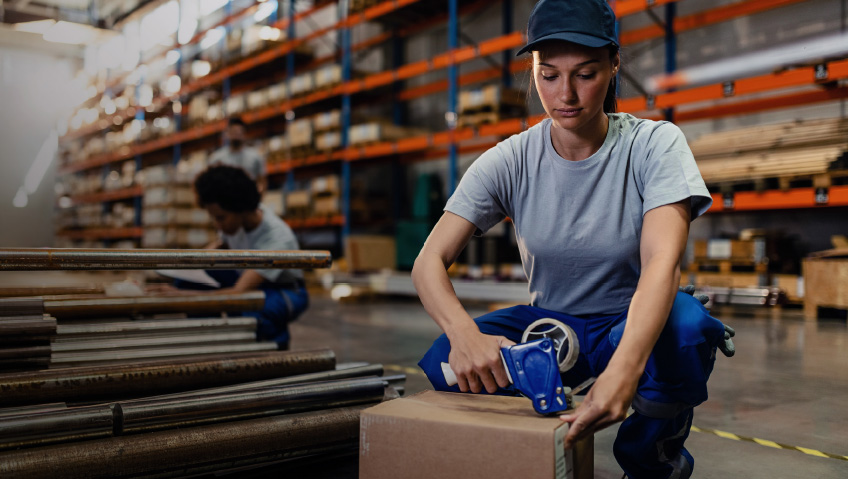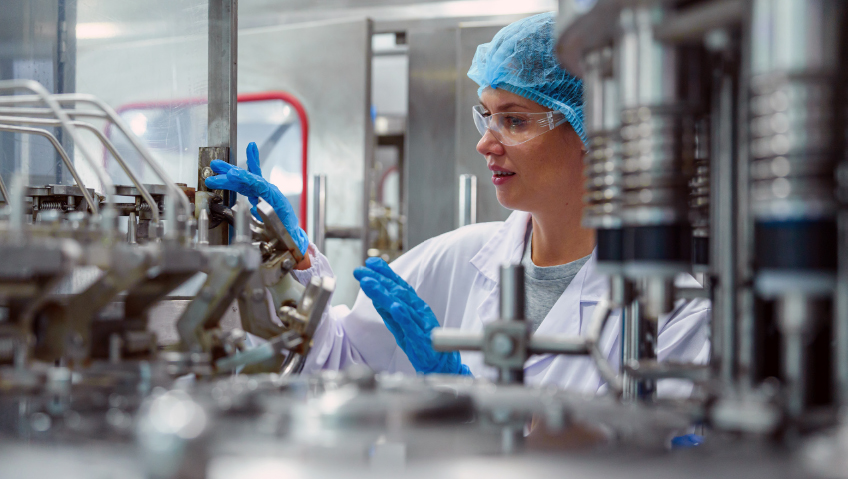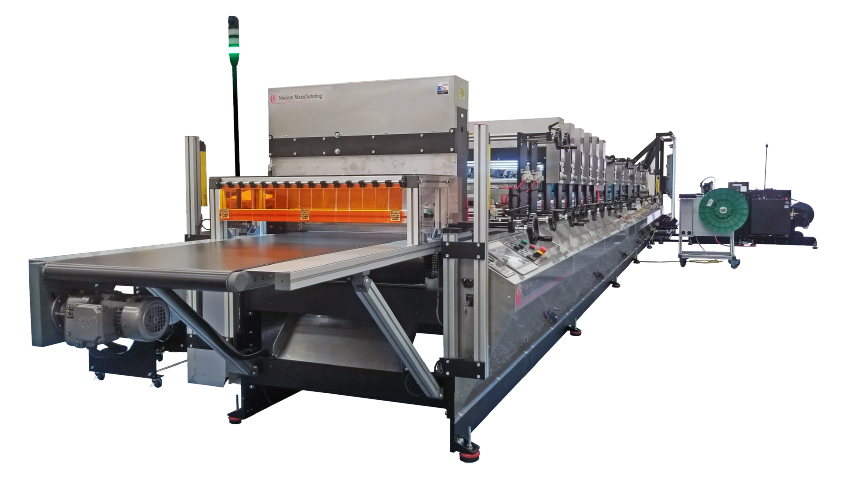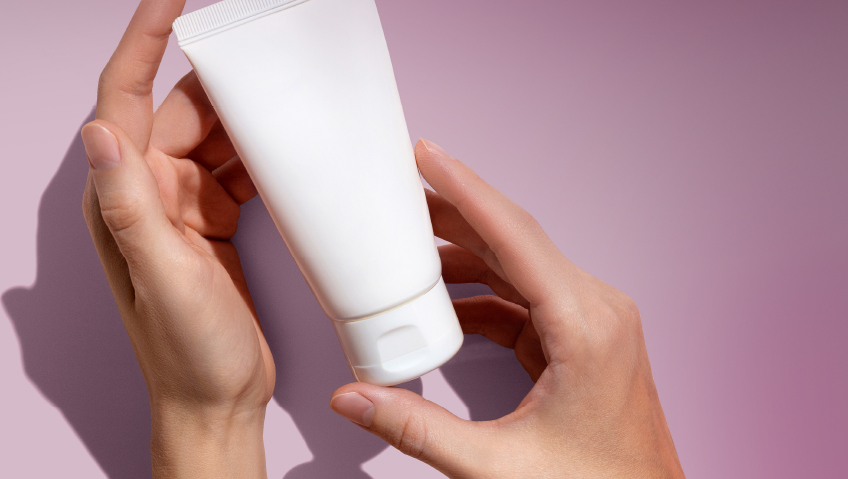Providing excellent customer service and an impressive selection of high-quality packaging materials for more than 85 years, Montreal-based Canadian Paper & Packaging Company, together with Arcadian Paper Converters, are working toward the growth of their business with a focus on sustainable packaging.
Working out of a 75,000-square-foot warehouse allows the companies to customize to meet specific needs.
In addition to its decades of experience, significant value, and expertise in stretch film and tape, the last few years at CPP have included a focus on becoming more environmentally responsible by encouraging clients to use less film and thinner board to lower their carbon footprint.
CPP’s origins were in catering to the garment industry, which at one time was huge in Montreal but changed drastically with the opening up of borders and removal of tariffs 20 years ago, leading to the majority of garments being manufactured overseas.
Pivoting on packaging
“We had to pivot a little when we then became an industrial packaging house and focused on products like stretch wrap, shrink film, and tape and boxes and bubble wrap,” says co-owner Brian Charney. While the market is competitive, the company is more than confident in its performance, abilities, and merchandise.
To remain competitive as well as moving with the times, CPP has been exploring the sustainability market and looking at how to be more environmentally friendly.
“Initially, we had a couple of [eco-friendly] products as we put our toe in the water, but no one seemed to want to pay extra for these products,” Charney says. “They want to be green, but without paying more. Finally, with one or two of our manufacturers and suppliers, we’ve created and are selling products that facilitate this.”
Stretch wrap—essentially very large rolls of plastic wrap used to wrap pallets—is a premier product line for CPP and the company has gravitated toward promoting films which can be down-gauged, meaning film thickness can be made thinner in the manufacturing process.
“It has performance equal to that of a much thicker film, so it becomes a bit less expensive per roll because it’s thinner. However, the performance is so good you don’t sacrifice load integrity,” Charney explains.
A thinner film means less is used, so the end user is now paying less per roll and is also using less film, benefitting the environment by reducing both the amount of plastic thrown away and the embedded carbon footprint.
“We’re really growing with this type of product, which is significant in an industry that was commodity-driven,” Charney says. “We’re managing to come up with a way for customers to use a lot less plastic. There’s a war on plastic these days, which I do understand, and it’s a necessary evil for now. But if everybody can use less, progress has been made.”
Environmental steps
Becoming more environmentally conscious requires people to be open-minded to trying something new, he adds, and he does see it happening more and more.
“I’ve had countless people that were using the 80 or 70 gauge who are now using 41 or 37 gauge… If you do the right thing, and you do it often enough, it should come back to you in the end. You have to do the right thing and hope that doing the right thing [for the environment] is right for everyone.”
CPP also sells a thin, white foam product used to protect articles susceptible to surface area scratching to keep them stable while in transit. In its ongoing effort to go green, however, CPP is looking to move from the white to a grey foam that contains 100 percent recycled content.
“Wherever we can, we’re jumping on board with sustainability. We’re doing anything that can help reduce that footprint.”
The new normal
The last few years have presented numerous challenges for all industries, but impressively, during the pandemic, CPP didn’t lose one day of work. While sales representatives weren’t able to visit clients on the road, the company managed to adapt and forge ahead.
“We kept going. We sell to a lot of companies in the food and pharmaceutical industries, and they were running 24/7,” Charney explains. The food industry in this instance encompassed companies selling to large chain grocery stores, and business was booming.
“Nobody was going out to restaurants; everybody was eating at home. These companies were running full-out and we managed somehow to keep them going, and never let down one of our customers even with supply chain nightmares.”
With product that used to take two weeks to arrive suddenly taking 14 weeks due to COVID disruptions, planning and purchasing took on heightened importance.
“It was scary initially. No one knew what the pandemic was going to be,” Charney says. “But we just invested money into purchasing and took our shot. Product might take longer, but let’s put it all in the pipeline now, and when other people were really out of product, we never were.”
This approach meant reaching out to clients and asking them to also plan ahead and provide their best projections.
“The truth is business was very good during that time. We managed to stay the course and excel,” he says. “We took an initial leap when it first began: if we normally bought two truckloads of a product, we put in an order for 15. It was a wise call at the time and worked out well. We kept all our customers running and nobody was ever without a product.”
Finding a niche
As well as distributing stretch film and foam, CPP works with Arcadian Paper Converters in the same facility, converting jumbo rolls of paper into sheets or small rolls of Kraft paper or newsprint. These are often used for stuffing and filling boxes or wrapping fragile items during a move. Arcadian also makes chipboard slip sheets that go under a skid for dividing and protective purposes.
“We have a little niche in this industry,” Charney says. “Whereas most of our competitors are purely distributors—they buy tape and they sell tape, as we do, of course—we have this niche where we’re a converter and sell to some of our competitors. We sell to end users, a niche that has some added value that not too many people have.”
CPP also has a sister operation, Canpaco, in Toronto and Leamington and a warehouse facility in Calgary. “That allows us to cater to some larger corporations that want us to service them nationally,” Charney says. “Because of our affiliation, we’re able to handle that.”
CPP also sells equipment, including stretch wrap machines and case sealers, and maintains its own in-house technical department to handle any service issues as needed. “If you have a problem, we can service your equipment,” he says. “We’re not a maintenance and repair company, but we do provide that service to our customer base.”
Standing out
This capability separates CPP from much of the competition, coupled with its extensive knowledge and years of experience in an industry filled with companies that often don’t have nearly the same resources.
“When you’re dealing with a more serious and established company like ourselves, we have a whole service department and technical department,” Charney says. “We sell equipment and we have a whole force here.”
He himself has 30-plus years of experience; his business partner John Taylor has been with the company for 40-plus years and their partner, Robert Appel, has over 38 years of expertise both in Montreal and Toronto, so together the three partners wield close to 110 years of knowledge and experience. CPP itself has been around for more than 85 years, with no signs of slowing down. “We’ve emerged from the pandemic stronger than we were before, and we’re continuing that drive forward,” he adds.
That drive includes focusing on high-performance films that can help the customer’s bottom line while contributing to sustainability and reducing the carbon footprint. “We’ve found a way to remain profitable and to save the end user some money… we’re reducing waste, one step at a time.”
Encouraging clients to embrace the drive toward sustainability is vital, but CPP intends to continue providing legacy products to those who still want it. But it won’t be the case forever, he adds.
“We are still going to have product for those companies, but that’s not the direction we’re focused on,” he says. “In the future—and I don’t know whether it’s one year or maybe three—we’ll only be selling those high-performance films because if the customers don’t want to come along, then we’ll have to find partners who do. Growing sales is of the utmost importance, but only in an environmentally responsible way. We all have to get on board, otherwise we’re all going to be in trouble.”
With its eye on the future and a strong dedication to doing what it can to help keep the planet green and healthy, CPP seems destined for even greater success. “We’re putting our head down and working hard while trying to help and trying to make money at the same time,” Charney says. “Our plans are to continue pushing forward and growing our company.”






